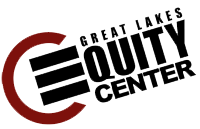Question-Asking and Advocacy by African American Parents at Individualized Education Program Meetings: A Social and Cultural Capital Perspective
The Individuals with Disabilities Education Improvement Act of 2004 mandates parental involvement during Individualized Education Program (IEP) meetings. Several factors including previous IEP experiences, level of ongoing communication between parents and education professionals, or existence of social and cultural capital resources can impact involvement. African American parents with low educational attainment or from low socioeconomic status (SES) backgrounds can be at risk for lower levels of involvement. With in-depth, semistructured interviews, this exploratory study examines two critical communicative dialoguing skills that parents at risk for lower levels of involvement often lack: question asking and advocacy. Eight African American parents (across socioeconomic and educational backgrounds) recalled questions asked and advocacy statements made at previous IEP meetings. Using grounded theory analysis, Strauss and Corbin (1998) showed that collaboration and communication occurred in areas mandated by law, but parents were largely unguided in asking their own questions or making statements. While many participants recalled high levels of involvement in the IEP process via question asking and advocacy, they drew on contacts and specific knowledge that at-risk parents do not typically have. Implications for parents with limited social or cultural capital are discussed, and a model approach to increase parental involvement based on innovations in patient–provider research is explored.
Contributor Notes
ABOUT THE AUTHOR
Natasha M. Wilson is an Assistant Professor/Faculty Fellow of Special Education and Policy at New York University Robert F. Wagner Graduate School of Public Service.

